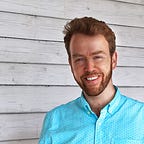Waking up, growing up and wising up: the hidden curriculum of the 21st century
Apparently Mahatma Gandhi never actually said “you must be the change you want to see in the world”, but it feels like he did because he lived this message, and the idea is as powerful and challenging as ever.
That the personal and the political are connected is widely accepted, but beyond that familiar sound byte it is rarely articulated in a way that clarifies how we should act. Our story of how the world sorts itself out has to be about more than saying: “If people were better, the world would be better”. And the idea that the world’s most complex and intractable challenges may have deeper spiritual dimensions intrigues even hard nose realists, but it’s not so easy to explain what it means, or illustrate in practice. And then there are those who feel this entire idea is mistaken, and we should not expect people to take personal responsibility for issues that are fundamentally political or economic.
So what’s going on? How should we think and feel? And what should we, you know, do? My approximate take is this: We can only deal with the curriculum of our time — what we have to do — if we better understand our hidden curriculum — how we know — a distinction for which I am indebted to Robert Kegan in his extraordinary book In Over our Heads.
Curriculum literally means to ‘run the course’, as in curriculum vitae, the course of my life. The curriculum for humanity is to survive, adapt and flourish if we possibly can. However, we have to run that course in the context of a range of dizzying frontiers; climate change as a clear and present danger, artificial intelligence as a transformative but uncertain influence, and the possibility that democracy is dying. The hidden curriculum of our time is how our souls might keep pace with the systems and structures around us and shape them for the greater good where possible.
Along with the RSA, where the project began, my organisation Perspectiva recently released a new edition of Spiritualise: cultivating spiritual sensibility to address 21st century challenges. A fuller version of the back story can be found here but now I want to focus on an outline of how we adapt to the hidden curriculum — the mostly implicit challenge of how we know, how we feel, how we relate, how we adapt and transform.
That question is HUGE, and contains everything how we find the will to love our enemies to how we confront our inevitable deaths. I try to address the question more fully in Spiritualise, but here is a distilled version of the tacit injunction of our times: I think we need to wake up, grow up and wise up.
Waking up is both spiritual and political, and ultimately recognising that they are the same thing. Questions of love and power are often at odds, but they are ultimately coterminous, as visionaries like Paul Tillich and Martin Luther King advised us many decades ago. We have heard of spiritual awakenings and political awakenings and we need both, but also a much deeper connection between them.
To simplify, we wake up spiritually when we realise our self is not what we thought it was and we wake up politically when we realise society is not what we thought it was. Waking up is partly about recognising that we are habitual creatures, often sleepwalking through life, vulnerable to distraction and persuasion, and that makes it hard for us all to “want what we want to want” as philosopher Harry Frankfurt puts it— an absolutely necessary condition for a life worth living and a democracy worthy of the name.
Growing up is a social and psychological process that begins early and never really ends. Being an adult is not just a legal category but a maturational commitment to take responsibility for our lives and the lives of others in their fullest possible context. Kegan’s model of human development is particularly compelling here because it clarifies the mechanism of growth as the subject-object relationship — our evolving capacity to relate to things that previously defined us — that is no trinket, but a bio-psycho-social-spiritual view of life as a whole. If you follow the logic far enough it even takes you to the dissolution of the subjective and objective distinction — something that arguably only happens at the ultimate level of enfolding abstraction, which some would call God.
Wising up is about getting beyond action-panic mode, and learning to shape culture and design institutions with ecological sanity, technological insight and spiritual sensibility so that they nurture the kind of world we want to live in. We need to solve problems — yes, we need new policies yes, and we need to ‘change the system’ in certain ways — yes, but beyond all that we need to think at the level of the social imaginary, what Charles Taylor calls ‘a wider grasp of our whole predicament’. From that vantage point it is possible to make wiser judgments about a range of interventions by better connecting our inner, outer and shared worlds; we need to understand not only how things connect, but how connections can be made in a way that to some extent anticipates emerging technologies, so that we can still shape the world with intentionality, rather than feel we are shaped by it.
So waking up, growing up and wising up — that’s the hidden curriculum we need to master. If you would like to know more, come to Perspectiva’s first public event on November 21st. The event will last 100 minutes from 7.30–9.10 at 42 Acres, Shoreditch. We can host 50 people and hope everybody leaves having learned something new, experienced something different and shared something they didn’t expect to. Audience participation in the second part is gently encouraged. See here for further details.
@Jonathan_Rowson
